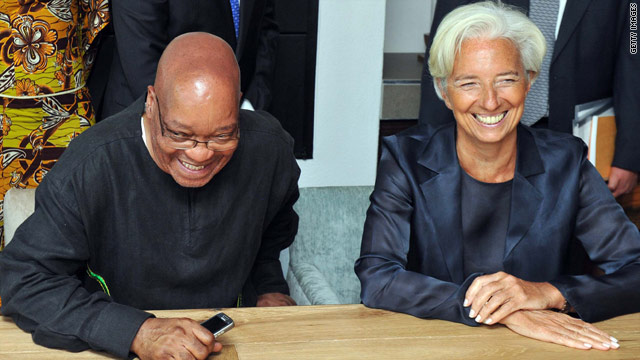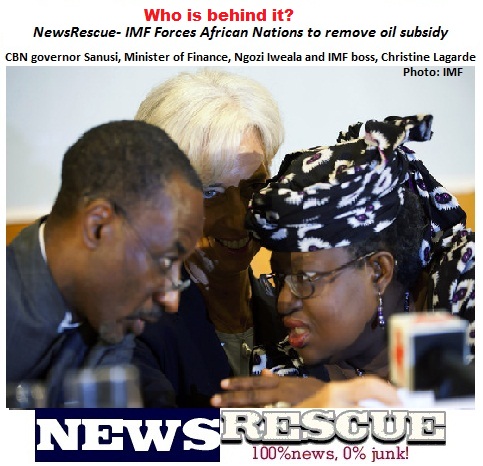We Pay Police To Kill Police, N500,000 per Head – Boko Haram

Boko Haram Leader
Information recently made available to 247urep through sources within the operational ranks of the terrorist Islamic group indicates the merciless attacks and killings of the officers of the Nigerian Police Force [NPF] by Boko Haram may be the operational activities of hired Nigerian police officers at work. This is as available information indicates that the leadership of the terrorist Islamic group have gone beyond inflitration of the NPF – and have reached the extent to have turned the Nigerian police officer into the executor/assasinator of fellow police officers. The Boko Haram, through its extensive reach into the NPF and the Nigerian military, has gained significant followership within the NPF and the military which extends beyond passive followership. A good section of the NPF is said to actively engage in the operational activities of the terrorist group – in areas including intelligence gathering, whistleblowing, and attacks on Nigerian security outfits. The Boko Haram source revealed that it pays N500,000 to each Nigerian police officer who kills another police officer, and N1million for the life of a Nigerian soldier. The source further reveals that 7 out of 10 police officers’s death attributed to Boko Haram’s operations were carried out by Nigerian police officers and men from other Nigerian security outfits. He states that the Kano operation was executed by a mixed of Nigerian soldiers, Police Officers and ordinary members of Boko Haram. “That is why we have lost only 16 since we began our operation. He also added that none of the people arrested and shot in Kano and Borno were members of Boko Haram.
They are not our own. Our men are accounted for”, he boasted adding that the security apparatus in Nigeria are intimately involved in the planning stages of virtually all Boko Haram attacks in Nigeria. “We wait for their signal”. He explained that many within the police rank sympatize with the plight of the Boko Haram and support them ideologically. Many within the ranks of the military and the police appear disenfranchised by a Christian presidency.
Independent inquiry conducted by 247ureports.com into the Boko Haram’s claim appear credible. It was gathered that in Bauchi State, prior to the coming of the present Bauchi police commissioner, a Police Coporal was arrested and charged for murder following a shoot-out where he was alleged to have killed his fellow officers stationed at a checkpoint. The former police commissioner of Bauchi State was reported to have made the arrest himself – as he coincidentally drove by the checkpoint moments after the police coporal had shot the 5 police officers dead. Upon further investigation, it was discovered that the police coporal had in his bank account the sum of N11million. The source of the money remains unknown to the police investigators. In Borno State, where the Boko Haram operation had been extensive. The source reveals that it is not a secret anymore in Borno the bounty placed on the head of a police officer and a military officer. It is an open secret on the streets. “None of our men were doing the killings”, he said. The killings came mostly from security men who shared the ideology of the terrorist group. The source claims that the security men in Nigeria are littered with their supporters.
In a related development, the source reveals that the terrorist group has called on all the feild commanders in northern Nigeria to temporally halt all operations – in response to what appears the onset of dialogue. The source notes however that not all members of the group are keen to the dialogue. “Our spiritual leaders are not interested in dialoguing” because, as he claims, when the members of Boko Haram were being ‘slaughtered’ via extra-judical means – that no Nigerian called for dialogue nor did the leaders of the north call for a dialogue.
Meanwhile violent operations credited to the Boko Haram continues in Kano State. Gunfire exchange between the men of Boko Haram and the Nigerian police at the Panshekara police station and the Naibawa Police post continued through the evening of Sunday 29, January to the evening of Monday 30, January – not minding the curfew imposed on Kano State by the State government. Seven persons have been reported [unconfirmed] dead at the Naibawa police post while no casualties have been reported at the Panshekara police station. The police is reported to have become visibly nervous on the trigger at the various police road block.
The morning of Monday January 30, 2012, near the town of Mandawari, a driver of a commercial bus was shot by a nervous police officer who mistook the bus for a possible Boko Haram threat. The Bus had approached the police road block at about 6am, at the end of the curfew, and as the bus slowed towards the road block, one of the officers shot the driver. The driver was rushed to a nearby hospital for treatment. No further information is available of the status of the driver.
Boko Haram Leader
Information recently made available to 247urep through sources within the operational ranks of the terrorist Islamic group indicates the merciless attacks and killings of the officers of the Nigerian Police Force [NPF] by Boko Haram may be the operational activities of hired Nigerian police officers at work. This is as available information indicates that the leadership of the terrorist Islamic group have gone beyond inflitration of the NPF – and have reached the extent to have turned the Nigerian police officer into the executor/assasinator of fellow police officers. The Boko Haram, through its extensive reach into the NPF and the Nigerian military, has gained significant followership within the NPF and the military which extends beyond passive followership. A good section of the NPF is said to actively engage in the operational activities of the terrorist group – in areas including intelligence gathering, whistleblowing, and attacks on Nigerian security outfits. The Boko Haram source revealed that it pays N500,000 to each Nigerian police officer who kills another police officer, and N1million for the life of a Nigerian soldier. The source further reveals that 7 out of 10 police officers’s death attributed to Boko Haram’s operations were carried out by Nigerian police officers and men from other Nigerian security outfits. He states that the Kano operation was executed by a mixed of Nigerian soldiers, Police Officers and ordinary members of Boko Haram. “That is why we have lost only 16 since we began our operation. He also added that none of the people arrested and shot in Kano and Borno were members of Boko Haram.
They are not our own. Our men are accounted for”, he boasted adding that the security apparatus in Nigeria are intimately involved in the planning stages of virtually all Boko Haram attacks in Nigeria. “We wait for their signal”. He explained that many within the police rank sympatize with the plight of the Boko Haram and support them ideologically. Many within the ranks of the military and the police appear disenfranchised by a Christian presidency.
Independent inquiry conducted by 247ureports.com into the Boko Haram’s claim appear credible. It was gathered that in Bauchi State, prior to the coming of the present Bauchi police commissioner, a Police Coporal was arrested and charged for murder following a shoot-out where he was alleged to have killed his fellow officers stationed at a checkpoint. The former police commissioner of Bauchi State was reported to have made the arrest himself – as he coincidentally drove by the checkpoint moments after the police coporal had shot the 5 police officers dead. Upon further investigation, it was discovered that the police coporal had in his bank account the sum of N11million. The source of the money remains unknown to the police investigators. In Borno State, where the Boko Haram operation had been extensive. The source reveals that it is not a secret anymore in Borno the bounty placed on the head of a police officer and a military officer. It is an open secret on the streets. “None of our men were doing the killings”, he said. The killings came mostly from security men who shared the ideology of the terrorist group. The source claims that the security men in Nigeria are littered with their supporters.
In a related development, the source reveals that the terrorist group has called on all the feild commanders in northern Nigeria to temporally halt all operations – in response to what appears the onset of dialogue. The source notes however that not all members of the group are keen to the dialogue. “Our spiritual leaders are not interested in dialoguing” because, as he claims, when the members of Boko Haram were being ‘slaughtered’ via extra-judical means – that no Nigerian called for dialogue nor did the leaders of the north call for a dialogue.
Meanwhile violent operations credited to the Boko Haram continues in Kano State. Gunfire exchange between the men of Boko Haram and the Nigerian police at the Panshekara police station and the Naibawa Police post continued through the evening of Sunday 29, January to the evening of Monday 30, January – not minding the curfew imposed on Kano State by the State government. Seven persons have been reported [unconfirmed] dead at the Naibawa police post while no casualties have been reported at the Panshekara police station. The police is reported to have become visibly nervous on the trigger at the various police road block.
The morning of Monday January 30, 2012, near the town of Mandawari, a driver of a commercial bus was shot by a nervous police officer who mistook the bus for a possible Boko Haram threat. The Bus had approached the police road block at about 6am, at the end of the curfew, and as the bus slowed towards the road block, one of the officers shot the driver. The driver was rushed to a nearby hospital for treatment. No further information is available of the status of the driver.






